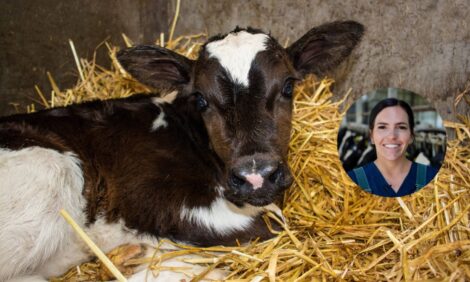



Synthetic cattle urine in the fight against malaria
Cattle urine odour can trick mosquitoes into trapsWorld Malaria Day is marked each year on 25 April and is instituted by the World Health Organization to highlight the need for continued investment and sustained political commitment for malaria prevention and control. At the Swedish University of Agricultural Sciences (SLU), the fight against malaria continues through novel research on how to control and trap the mosquitoes that carry the malaria parasite.
Each year, more than 200 million people suffer from malaria around the world, and every two minutes a child dies from the disease. The disease is most common in poor areas and is itself a contributing factor to poverty: a sick person cannot perform his or her daily tasks, which can lead to a loss of income for the household. At the societal level, the healthcare system and the economy of countries, where malaria is endemic, are affected.
The need for novel control approaches
As there is currently no effective vaccine available to prevent malaria, controlling the mosquitoes that spread the parasite is imperative for preventing the spread of the disease. However, the existing techniques for indoor malaria mosquito control have been put to the test, due to the development of pesticide resistance in mosquito populations and behavioral changes in the mosquitoes.
As a result, there are now more people being bitten outdoors. Therefore, there is an urgent need for innovative control methods that complement the current strategies and specifically focus on mosquitoes that are active outdoors.
Cattle urine odour can trick mosquitoes into traps
Outdoor-based traps can be substantially more efficient when baited with synthetic human and animal odours. For example, it has been demonstrated that cattle urine attracts many blood sucking insects, in various physiological stages and different species of mosquitoes. Adult female malaria mosquitos use the urine as a supplementary nitrogen–rich meal, enhancing flight mobility, survival and reproductive traits.
Researchers from SLU took this into account when they initially developed a synthetic cattle urine odour to lure malaria mosquitoes into traps. This was further tested in a study, in which the efficacy of the synthetic cattle urine in attracting malaria mosquitoes outdoors, was evaluated in the Kilombero Valley, Tanzania. Here, they found that they captured different species of malaria mosquitoes depending on the distance from the human dwellings. With this information at hand, they set up an intervention study in two villages outside of Arba Minch in southern Ethiopia.
During one year, the researchers collected seasonal information on the malaria mosquito species populations along with data on the presence and prevalence of malaria in mosquitoes and humans. At the onset of the second year, they installed 50 traps baited with the synthetic cattle urine odour, powered by solar panels, in one of the villages and continued collecting entomological and parasitological data.
Results
By mass trapping, they were able to reduce the population of malaria mosquitoes by up to 70% and malaria prevalence by up to 60%, despite a major malaria epidemic affecting the region, says Professor Rickard Ignell, Department of Plant Protection Biology, SLU.
How can this research help solve the problem with malaria?
By increasing our understanding of the ecology of malaria mosquitoes, it is possible to develop novel tools for their control. Cattle urine is sought by both male and female mosquitoes. Modifying mosquitoes' behaviour can reduce the burden of malaria.
What is the next step in this important research?
To find low-cost option for the traps, and to approach decision-makers so that this type of intervention tools can be incorporated in the integrated vector management strategy, Rickard concludes.


